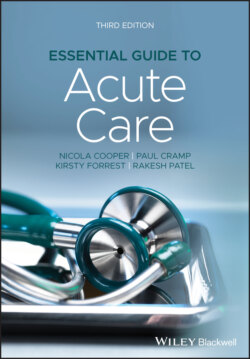Читать книгу Essential Guide to Acute Care - Nicola Cooper - Страница 19
Do Early Warning Scores and Medical Emergency Teams Make a Difference?
ОглавлениеEarly warning scores are based on the use of aggregate weighting scoring systems, whereas the original MET calling criteria were based on single parameters, including the concern of ‘worried’ ward staff. The idea behind these trigger systems is very simple: patients often have a prolonged period of physiological instability prior to admission to the ICU, and the earlier this can be identified, the better the overall outcome.
There does not seem to be evidence that implementation of a single parameter trigger system alone improves patient outcomes, but there is evidence that the introduction of aggregate weighting scoring systems (e.g. NEWS2) improves survival and reduces unplanned ICU admissions and cardiac arrests. Likewise, when compared with standard care, medical emergency teams improve hospital survival, reduce unplanned ICU admissions, and reduce cardiac arrests, although their effect on hospital length of stay and ICU mortality remains unclear.19
The UK has focussed on identifying the deteriorating patient using aggregate weighting scoring systems, but the response to patients identified as being sick requires significant improvements. In Australia, where medical emergency teams are established, the identification of deteriorating patients using a single parameter trigger system has been less successful. Overall, for a rapid response system to be effective, it appears that a whole system approach is needed which includes trigger systems that identify deteriorating patients, clinician‐led medical emergency teams, and continuing education programmes.
